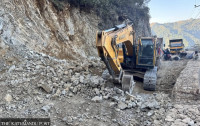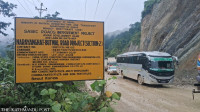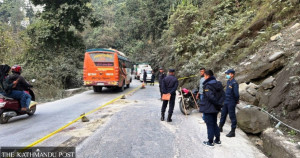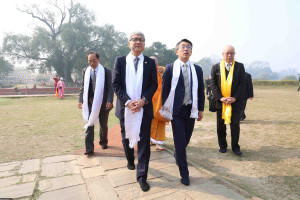Lumbini Province
Tinau River turns black due to landslide at coal mine
Landslide at the river’s origin has carried coal-laden silt downstream, making the water unsafe for irrigation, drinking, and livestock.
Madhav Aryal
The water in Tinau river, which originates in Palpa, has turned muddy and black in recent days, with photos and videos of the discoloured water going viral on social media. Police said the landslide at the river origin caused the water to turn black.
A police team from the Purvakhola Area Police Office visited the landslide site on Saturday. Senior Police Head Constable Netra Bahadur Bhat Chhetri said that although the water source at the site is small, it carried black silt downstream.
Raj Kumar Panthi, ward 1 chair of Chidipani, of Mathagadhi Rural Municipality, said the river had been flowing muddy and black for several days.
“At first, it seemed normal because of embankment work upstream, but as the flow continued, locals shared it on social media, drawing the attention of police and local administration,” he said.
During the rainy season, it was ordinary silt, but recently, black, coal-laden silt has turned the water muddy and dark downstream. “The source is small, but steep slopes and coal runoff have caused this problem,” said local Khem Bahadur Baral Magar.
The landslide site also contains coal mines, and the water carrying black silt is flowing into the Tinau River towards Butwal via Madi, making the river turbid.
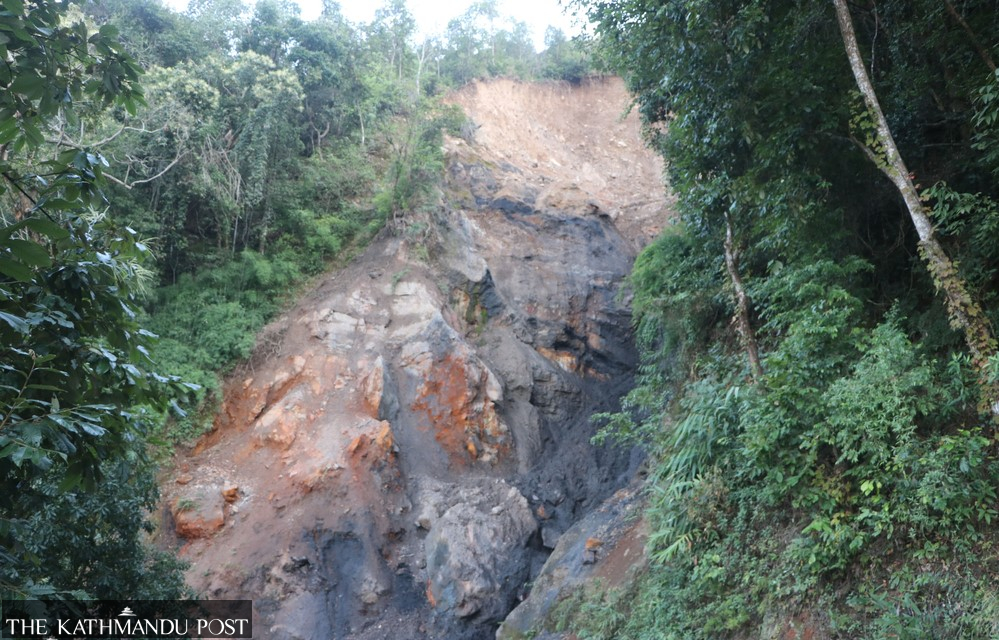
Environmental experts warn that water with coal silt is unsafe for irrigation, domestic use, or livestock. Several coal mining sites operate in the area.
Water flowing through these coal mines had previously been reported as unsafe for drinking, irrigation, or livestock.
Environmentalist Yubaraj Kandel said the water’s carbon dioxide content rises, affecting aquatic life and plant growth. “The silt contains pyrite along with coal, which increases the water’s acidity, making it unsafe for drinking or irrigation. Acidic water leaches arsenic, lead, and copper from rocks into the river, reducing dissolved oxygen and harming aquatic life,” he added. The silt also settles in the riverbed, destroying natural habitats.
Locals said they were aware of the environmental impact of coal mining. “When the mines were active, environmental experts warned us about the negative effects,” said local Bir Bahadur Gaha. “We know the black water is not suitable for irrigation or livestock.”
According to locals, a small landslide two years ago has now expanded dramatically. Shrubs and bamboo groves have been swept away over nearly 200 metres, and in the past month, an additional 100 metres of landslide occurred, said local Shivlal Gaha.
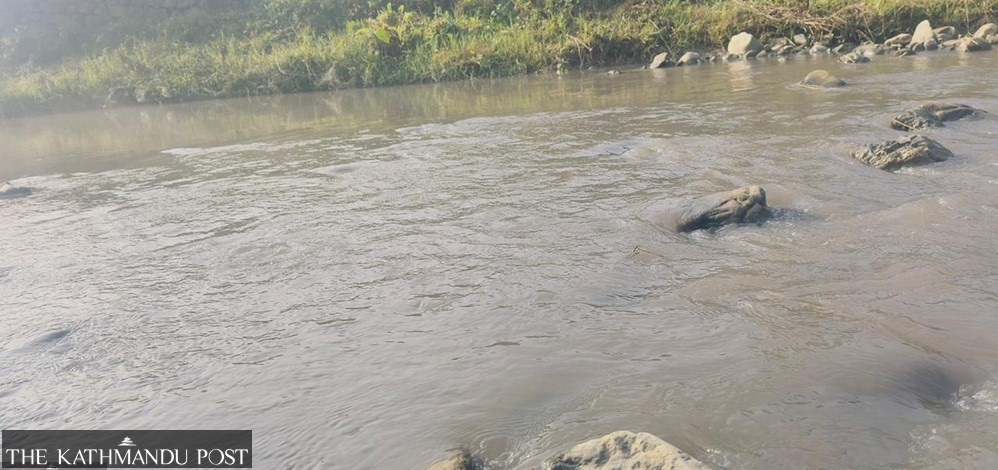
Residents are facing difficulties reaching their fields and transporting harvested rice due to the landslide. A journey that once took 30 minutes now takes 90 minutes. “Until Dashain, the dirt path was passable, but now an additional 30 metres has been washed away,” he said.
While there is no immediate danger, 12 houses are at risk due to the landslide. The police have urged these households to stay alert.
In recent days, the administration, local authorities, and residents have expressed concern. Senior Police Head Constable Chhetri said people have been advised not to use the water for irrigation or drinking.
Coal mining was active in Devinagar, ward 4 of Purbakhola Rural Municipality, until six years ago, but locals stopped operations due to irregular and careless extraction. Coal mines were also present at the current landslide site.
Ward chair Mehar Singh Thapa said residents downstream must remain cautious as black silt continues to flow from the river’s source. “Our capacity to act is limited,” he said, adding that he plans to request a study from the Department of Soil and Watershed Management.




 11.12°C Kathmandu
11.12°C Kathmandu



